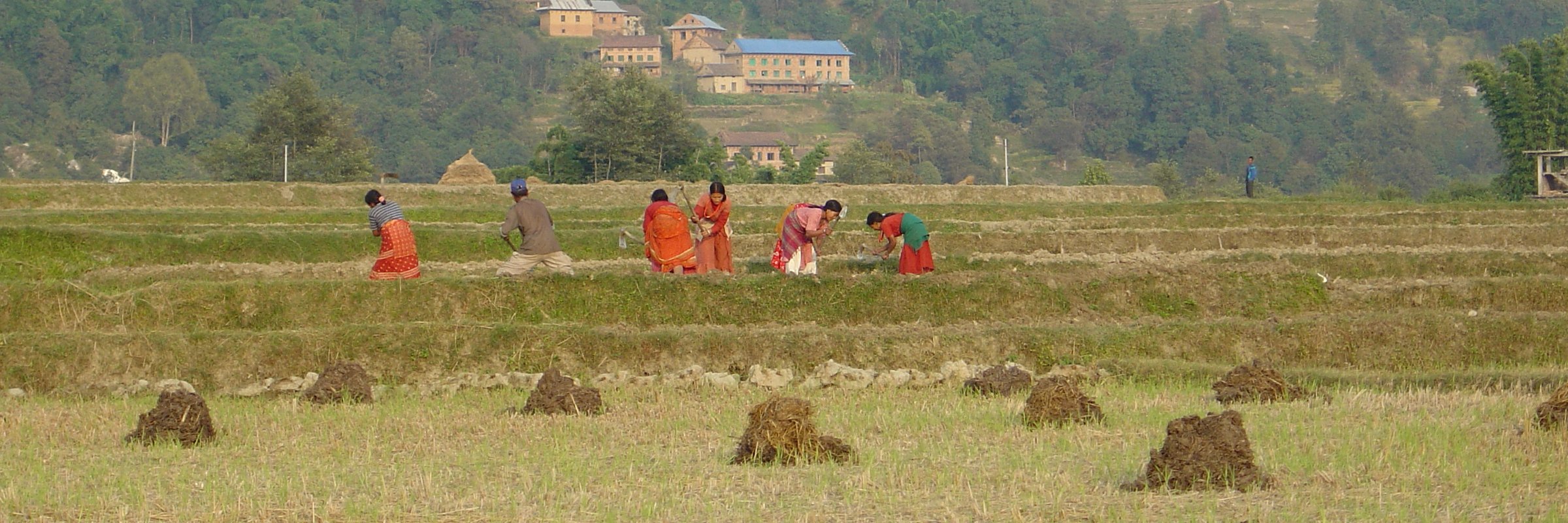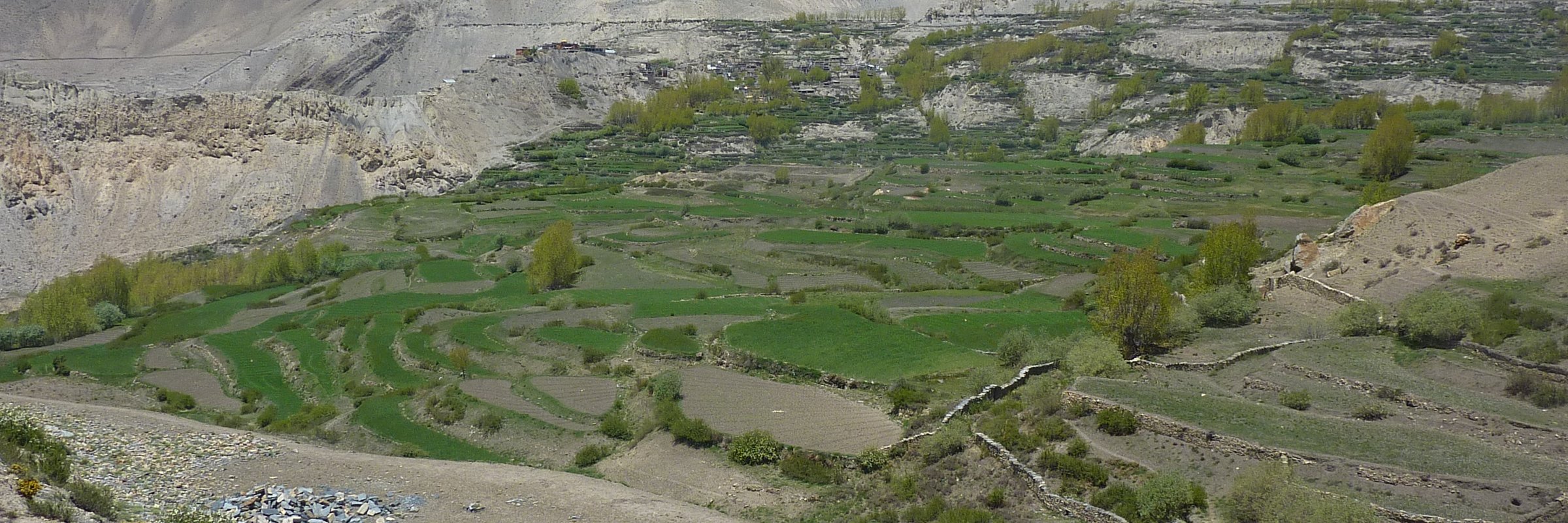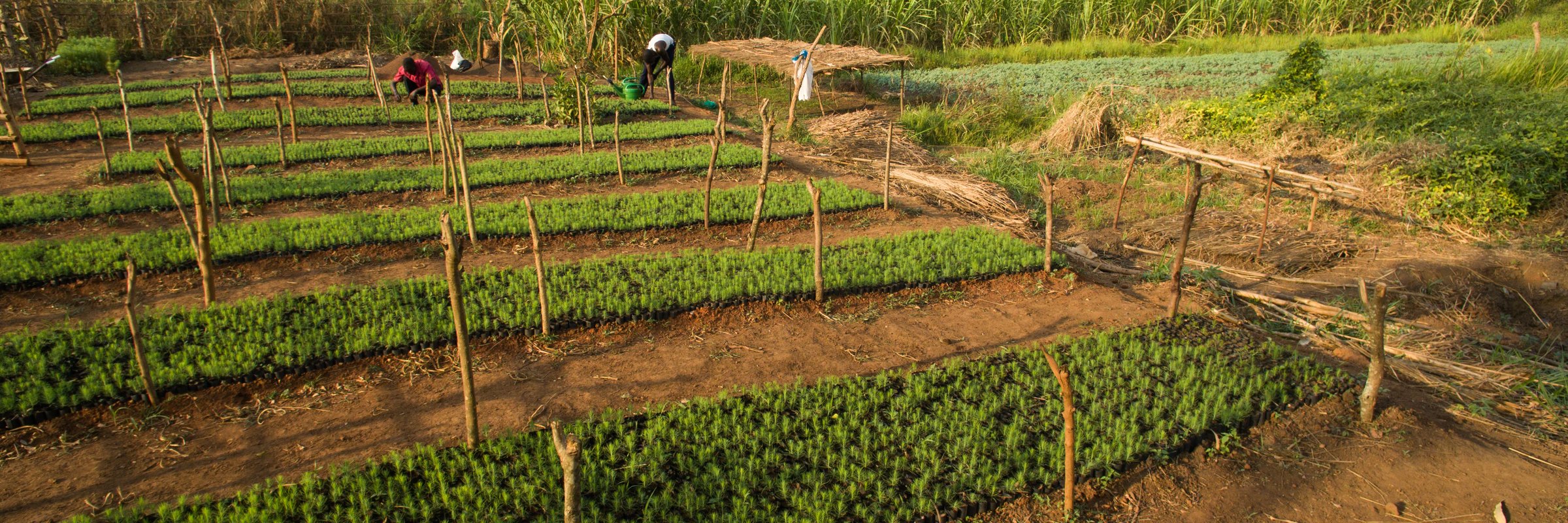What is SLM for WOCAT?
The main objective of Sustainable Land Management (SLM) is to promote
human coexistence with nature with a long-term perspective so that the
provisioning, regulating, cultural, and supporting services of ecosystems
are ensured. SLM is an essential prerequisite to sustainable
development; progress should be made simultaneously at all levels. In
terms of such concerns as food security, poverty alleviation, livelihood
improvements, water conflicts, and ecosystem services, SLM is an
important local issue that is also a global concern.
Within SLM, WOCAT focuses mainly on efforts to prevent and reduce land degradation through Soil and Water Conservation (SWC) technologies and their implementation approaches. The use and sharing of information related to these efforts is a key asset of WOCAT. Training enhances capacities for better SWC implementation. This leads to improved knowledge management. The aim of WOCAT, as a network, is to increase the awareness and motivation of planners and decision-makers as well as land users and agricultural advisors. WOCAT hopes to reduce investment failures by providing knowledge support concerning the advantages and disadvantages of available alternatives, based on a wide range of experience in the field.
The extent and effectiveness of SLM/ SWC today, be it within a given region or at a worldwide scale, is not known. There is, therefore, a pressing need to assess these issues, not least in view of the heavy investments being made in this sector. By providing the appropriate tools and networks required for conducting such an assessment, WOCAT can play an important role in this domain.
Within SLM, WOCAT focuses mainly on efforts to prevent and reduce land degradation through Soil and Water Conservation (SWC) technologies and their implementation approaches. The use and sharing of information related to these efforts is a key asset of WOCAT. Training enhances capacities for better SWC implementation. This leads to improved knowledge management. The aim of WOCAT, as a network, is to increase the awareness and motivation of planners and decision-makers as well as land users and agricultural advisors. WOCAT hopes to reduce investment failures by providing knowledge support concerning the advantages and disadvantages of available alternatives, based on a wide range of experience in the field.
The extent and effectiveness of SLM/ SWC today, be it within a given region or at a worldwide scale, is not known. There is, therefore, a pressing need to assess these issues, not least in view of the heavy investments being made in this sector. By providing the appropriate tools and networks required for conducting such an assessment, WOCAT can play an important role in this domain.
WOCAT's definition of Sustainable Land Management (SLM):
SLM is defined as the use of land resources, including soils, water, animals and plants, for the production of goods to meet changing human needs, while simultaneously ensuring the long-term productive potential of these resources and the maintenance of their environmental functions.
Glossary
Check
out our Glossary to obtain a better understanding of how WOCAT defines key terms.
WOCAT Impact Stories 

Discover the Impact Strories of SLM in different countries.


